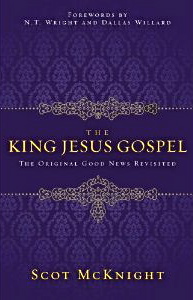“For the message of the cross is foolishness to those who are perishing, but to us who are being saved it is the power of God. For it is written: “I will destroy the wisdom of the wise; the intelligence of the intelligent I will frustrate.”” (1 Corinthians 1:18–19, NIV84)
The words “Hurry Obi-wan Kenobi. You’re our only hope” still make me chuckle. I don’t know why, they just sound silly to me. I wonder sometimes if in our earnestness to express the value the Christian gospel in our lives if we don’t come across as sounding kind of silly too. We probably do to some people.
In my post Monday I expressed – as I usually do – that the gospel is our ultimate hope. It is our only hope. But what did I mean by this? On the surface, it might sound as if I am saying that if we could just make everyone Christians we wouldn’t have these sort of tragedies. The implication is that Christians are inherently more moral than those who are not. Continue reading




